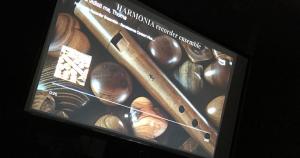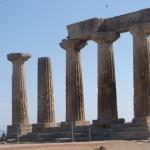Build that wall if you have good laws.
The law is why cities build walls and without the rule of law there is no reason to build a wall. The rule of law provides many good things worth protecting, even the most superficial are miracles of organization and customs. Culture makes goods possible that we could not have alone.
Jesus Christus, Unser Heiland* is available for a listen now, thank you Alexa, and Heraclitus can be read immediately, thank you Kindle. The music, the natural calm of wooden recorders, and the wisdom of a philosopher who worked before Socrates are good. When I was a boy, listening or reading either would have been hard. 
This ability to enjoy deep cultural treasures, as once most could not, is good. The culture, laws, customs, and society of here and now delivered both Lutheran Renaissance recorder music and Heraclitus to my home. A tsar could not command the music and text options that this civilization gives to many (even if not enough).
When I was a boy, the radio gave me few musical choices, while musical recordings were expensive and limited by what was popular. Recorder music? That hasn’t been. The library did not have nearly enough books on. . . Anything. Civilization survived the external pressure from socialist and atheist tyrants abroad and the turmoil our sins brought on us within our nation.
Civilization survives when law flourishes.
These are not the best of times in all ways, but they are good times in some ways. Partly this is because we have laws, rules, and customs that stand between my family and the horror of “every man doing what is right in his own eyes.” When a culture dies, and cultures die, the result is chaos where there is no time for music that is not martial. Books immediately meet a need or they are not worth reading.
 The Greeks in the time B.S. (Before Socrates) understood the fragility of civilization, because they experienced rises and falls in single lifetimes. One bad crop combined with a bad ruler could end the life of a city, while some horde of people, pushed off their own lands by other hordes of people, could sack a city. A man could could live to see a city born and die in his own lifetime.
The Greeks in the time B.S. (Before Socrates) understood the fragility of civilization, because they experienced rises and falls in single lifetimes. One bad crop combined with a bad ruler could end the life of a city, while some horde of people, pushed off their own lands by other hordes of people, could sack a city. A man could could live to see a city born and die in his own lifetime.
When such people wrote of law, they most often meant the totality of the ways of the city. How do we then live? The law guides us. Heraclitus of Ephesus lived in a city under pressure from a great, powerful external culture, Persia. Walls were needed to give some independence, but Ephesus was not defined by her walls. Greeks built a wall around a city defined by custom or law.
A wall was as big as was needed to protect those who lived by the law from those who did not. The wall was an outer sign of a inner truth: within is Ephesus as defined by the customs, culture, and laws of the Ephesians. A culture is doomed when it is defined by the wall. The great city of Constantinople was doomed when most of those fighting on her walls were no longer Roman, but people from different cities, with different cultures, and different laws.There was nothing within the city to protect.
Heraclitus put it this way:
249 The people must fight on behalf of the law as though for the city wall.
Note that Heraclitus does not wish Ephesians to cease to fight at the wall, but to also defend and define the law. A man cannot fence off some land, build a wall, and have a city. Instead, a city often must build a wall once she has defined herself and her people. Only in this way can she begin to provide civilization and her contents.
Law defines a civilization and walls defend the civilization. When a state does not live out her laws, then no wall can save her. That’s partly how Constantinople became Istanbul. When a lawful state does not protect her borders, she attracts looters, moochers, and losers. A wall is the defense of good laws, good laws are why we fight. Law does not just allow for music, art, science, and dignity for all humans: law creates all the goods of this particular civilization.
Heraclitus says even more, his brevity being the soul of his wit: walls and wisdom are worth a fight. Walls are where and laws why we fight. It will shock no American to observe that we are unsure of what defines us and unwilling to defend what we cannot define. Now for John Turner, Recorder, and some English folk songs. Tomorrow to continue to fight on behalf of the law as though for the city-wall: build the wall having defined the customer.
————————————————-
*Jesus Christ, our Savior as played by the Harmonia Recorder Ensemble.











